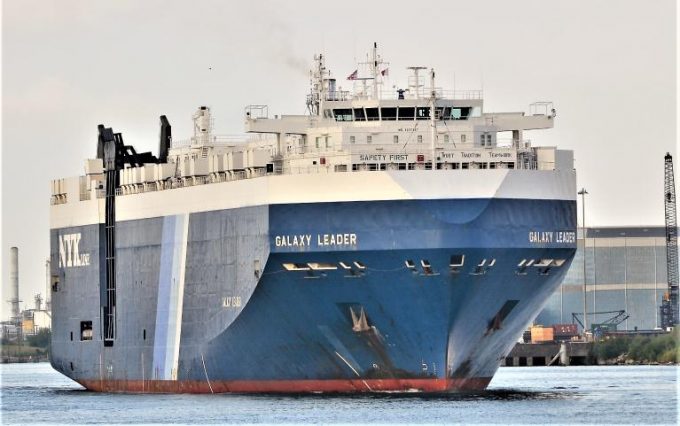Threat of rising oil price adds to frustration for crisis-hit supply chain chiefs
New warnings from the World Bank of surging oil prices, adding to the continuing instability ...

Shipping firms with vessels transiting the Suez Canal, and its Red Sea approaches, were warned about the heightened risk of hijacking shortly before Iran-backed Houthi rebels captured a car-carrier yesterday.
The 2002-built Galaxy Leader, enroute to India from Turkey, is operated by Japanese shipping line NYK and registered in the Bahamas. However, according to the vesselsvalue.com database, it is owned by Isle of Man-based Ray Car Carriers, which is 50% owned by Israeli businessman Abraham “Rami” Ungar.
The 4,500 ceu [car equivalent unit] vessel, with the Indian port of Pipavav as its destination, was reportedly seized by Yemen’s Houthi rebels at around midday on Saturday in the Red Sea and diverted to a Yemeni port.
According to the Washington-based Institute for the Study of War (ISW): “Houthi fighters fast-roped onto the deck of the Galaxy Leader from a helicopter.
“Senior Houthi officials have repeatedly threatened to target Israeli shipping in the Red Sea in recent weeks. This attack marks the first instance in which the Houthis have acted on these recent threats.”
Israel claimed the hijacking took place under the direction of Iran, which backs the Houthi rebels.
It said: “Onboard the vessel are 25 crew members of various nationalities, including Ukrainians, Bulgarians, Filipinos and Mexicans.
“This is another act of Iranian terrorism and constitutes a leap forward in Iran’s aggression against the citizens of the free world, with international consequences regarding the security of the global shipping lanes,” a government statement said yesterday.
Less than 48 hours before the hijacking, regional anti-piracy naval and security forces – the International Maritime Security Construct (IMSC) and Coalition Task Force Sentinel – jointly issued a warning about the “rising threat level in the Red Sea”, and recommended that when approaching the Bab Al Mandeb straits, which separate the Middle East peninsula from East Africa, vessels should create the “maximum feasible distance from Yemeni waters” and “transit at night when possible”, which it claimed would “reduce the likelihood of visual identification by malign actors”.
It also reiterated that ships should perform well-established anti-piracy movements to avoid capture, but added: “Should your vessel be threatened, don’t stop and be a hard target through your manoeuvre.”
However, anti-piracy measures for vessels were developed over a decade ago, during the height of Somali pirate attacks on commercial shipping in the region, and may well need updating, given the more advanced technology handed to the Houthis by Iran.
The ISW added: “The [Iranian] IRGC Quds Force maintains a minor naval presence off Yemen’s coast in the Red Sea that it uses to surveil maritime traffic in support of Houthi attacks on commercial tankers.”
Comment on this article